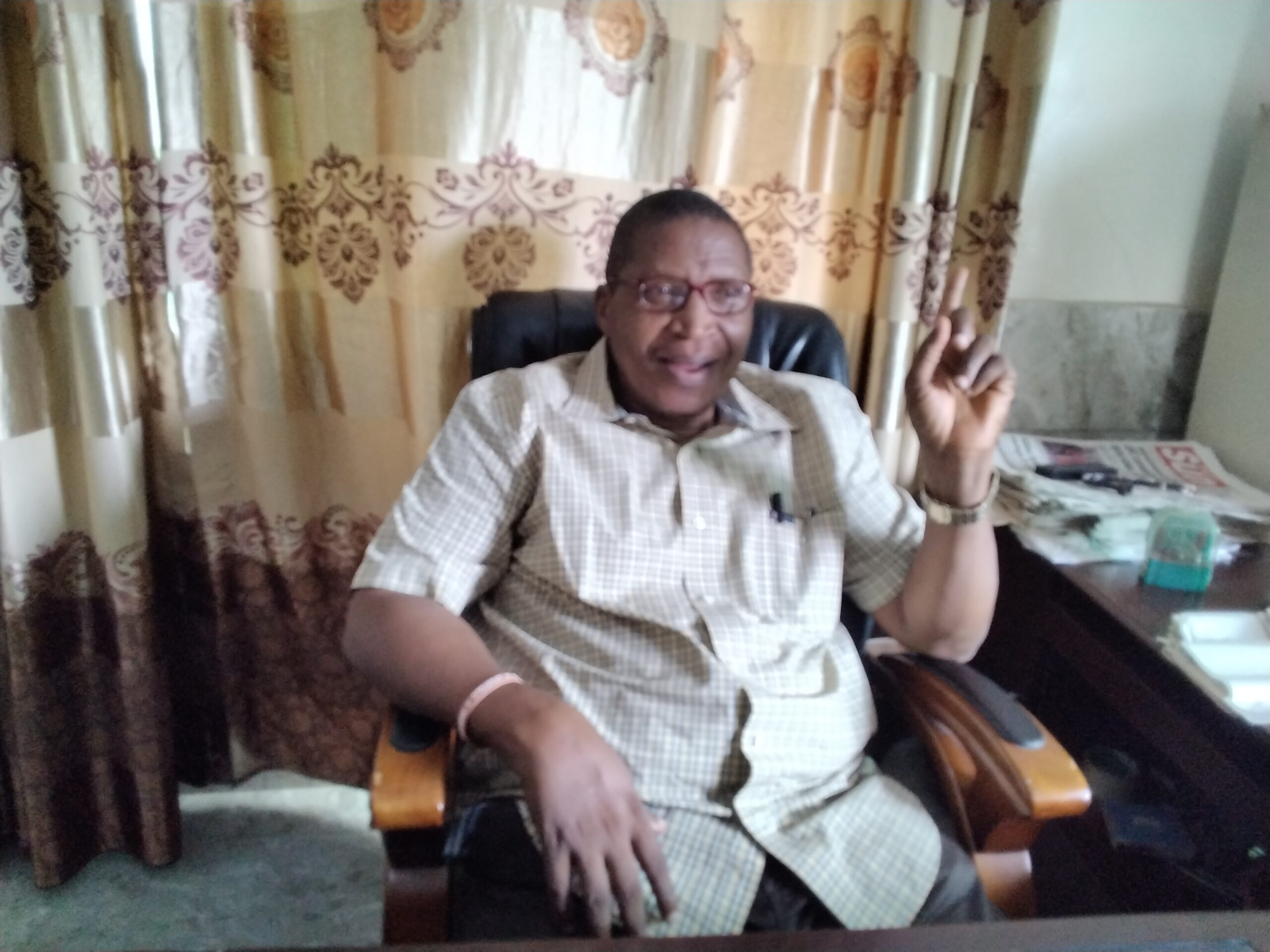By Modestus Umenzekwe
Shelter remains a very veritable and critical aspect of human needs, ranking second only after air, so its significance cannot be over-emphasised and any serious government would not joke with issue of shelter for its citizenry. According to Prof. Akpan Ekpo, a Professor of Economics and Public Policy, University of Uyo ‘Adequate and quality housing units is one of the roles of any government since housing is one of the human fundamental needs. This indicator signifies, among other factors, the standard of living of a country’s populace. It can also be used to measure the economic viability of a nation. Housing deficit, when left unabated, could lead to increase in crime, outbreak of diseases, unaffordable house prices, poor standards of living as well as high mortgage payments. Due to this, the United Nations (UN) advocated for the adoption of Goal 11 globally. Goal 11 was targeted to capture a holistic perspective of the housing sector, with a view to achieving quality and affordable housing units for all by 2030.’
Therefore to achieve high quality housing for socioeconomic growth and development a lot need to be done. According to the erudite prof quoted above he said ‘In Nigeria, majority of cities are fast becoming homes to scores of individuals due to influx, rapid-growing population and rapid urbanisation, among other factors. With this trend, there has been increase in the demand for houses across the country…’
Of course, in response to the indispensability and high need for housing in Nigeria, the Federal Government instituted the federal housing authority, with the mandate of, among other things, to ensure that this yawning gap in housing infrastructure is meaningfully reduced. Part of the mandates of the Housing Authority include preparation and submission to government, from time to time, proposals for National Housing programme; execution of such housing programme as may be approved by Government; development and management of real estate on both commercial and profitable basis in all states of the federation; provision of site and services scheme for the benefit of all income groups; making of recommendations to government on such aspects of urban and regional planning, electricity, transportations, sewage, and water supply as may be relevant to the execution of approved housing programme.
Today, the Federal Government has done a lot and is still working to ensure it delivers quality and affordable housing to Nigerians, and to do that the government, through the workaholic and indefatigable Honourable Minister of Works and Housing, Babatunde Raji Fashola (SAN) appointed two eminently qualified Nigerians who worth their onion in the Housing sector to do the housing job for Nigerians. We are talking about no other persons than Senator Lawal Shuaibu, Chairman, Board of FHA, and Senator Gbenga Ashafa who is in charge of the day-to-day activities of the Housing Authority. Senator Shuaibu and Senator Ashafa are two different people, from two geopolitical zones of the country, North and South, but they have one thing in common. What they have in common is the unity of the country, the success of the country; they have listening ears when they are talked to, and common effort to make sure that the housing problem is solved within their own tenure, I commend them for that.
In truth the style of these two gentlemen in handling the housing sector in Nigeria has brought great transformation to that sector and Nigerians have never had it this good.
Since the inception of the administration of Senators Lawal Shuaibu and Gbenga Ashafa as the helmsmen of the Authority, infrastructural facilities delivery across the six geopolitical zones of the country are carried out seamlessly, noiselessly, and masterfully. All the estates built by the Authority cannot be compared with any developer in town; the estates give values for money in quality and aesthetics; the properties also appreciates in market value rapidly and amenities which make living enjoyable like school, clinic, recreation facilities, places of worship and many more, are never compromised in the estates.
Since inception of the Senator Ashafa, Management has shifted focus on the delivery of another Mass Housing project in Bwari Area Council of Abuja, after the success of the pilot scheme in Zuba. Any moment from now the Zuba mass housing will be commissioned. Even as the engineers put finishing touches on the project, you see the Distinguished Senator personally taking over the inspection of work, making numerous trips, even on weekends; that is Senator Gbenga Ashafa for you. He ensures periodic human capacity development, despite authority’s lean resources, of several categories of staff in line with his initial commitment to capacity development on assumption of office, and digitization and automation of the authority’s operations is a top priority for the MD.
Unlike before, the zonal offices are now getting more active. For instance in Lagos Zone, efforts are being made to ensure that FESTAC Town is sanitized. The zone has also exerted energy in confronting the sanitary situation along the 4th Avenue of FESTAC town, which resulted from blockage and overflow of the sewage lines. Work has also continued in resolving the issue at 9th Avenue, where demolition of illegal structures took place. As at today, the As-Built Ariel Survey of the entire area has been carried out.
Again in the southeast there is the acquisition of land at Abakaliki, the Ebonyi State capital which is at advanced stage. The zone is pursuing vigorously the land acquisition in Umuahia, Abia State, work is also ongoing on the roads at Egbeada Estate in Owerri, Imo State. The South-South is not left out as there is intensification of efforts in marketing the authority’s estate in Yenegoa, Bayelsa State.
Of course again coming on board is the opening up of Kabusu for the development of a new city that will house both Diasporians and Nigerians, an infrastructure and construction that promise to be a smart city project.
According to information, management has commenced the development of the Bwari Mass Housing project, the project coming after the completion of the Zuba Estate was conceived as part of the federal government economic sustainability plan in Bwari, with a proposal of 300, 000 mass housing progamme to be executed by the federal housing authority. The project which will sit on about 300 hectares of land, when fully completed has been designed to be executed in phases. The first phase covers about 54 hectares of land with plots for residential, commercial, educational, religious, special units and other necessary supporting facilities. With the constitution of a supervisory team on 16th March, 2022, a maiden site visit was carried out by the project team supervisors, paving way for the handing over of the site to contractors and site clearance on 25th March, 2022.
Between 1st to 5th April, 2022, meeting were held amongst key stakeholders including the FHA supervisory team. Bwari natives and the chairman of the Bwari area council where all issues concerning payments of compensation, were resolved, paving way for the clearing of the site.
The landmark project which was executed under Senators Shuaibu and Ashafa, the Zuba Mass Housing project sits on 18 hectares of land, housing 764 units of various house types. It comprised 16 blocks of 3 bedroom flats in a block of 8 flats, 32 blocks of 2 bedroom flats in a block of 8 flats, 14 blocks of 1 bedroom flats in a block of 16 flats and 5 blocks of terrace duplexes in 4 rows.
The estate is already served with 100% completed standard infrastructure such as roads, drains, external water distribution network, electricity external reticulation, perimeter fence work, 3nos water stations, injector transformers, civil works and servicing of blocks with underground cables.
Beyond issue of structures, the Authority has developed sustainable frameworks for its Social and Cooperative Housing Schemes. The Authority is building and fostering sustainable relations by identifying Cooperative Societies, Trade Associations, Non-governmental Organizations (NGOs), Community Based Organizations (CBOs), Faith-Based Organizations (FBOs) with need and capacity for homeownership; Agreeing on modus operandi and levels and scope of collaboration; Delivering on sustainable basis quality, affordable and accessible housing solutions to Nigerians.
Let me just give some of instances of past projects which are under the management of these two great Nigerians who have taken solution for the Nigerian Housing needs to another pedestal with a quantum leap. We have the Festac Town Lagos; Ipaja Estate, Lagos; Abesan II, Lagos; Sharada, Kano; Aladinma & Egbeada Estates, Owerri, Imo State; in Sokoto we have RunjinSambo; there is in Benue, North Bank Estate, Markurdi; Niger, Bosso Estate, Minna; Rivers, Old Trans-Amadi / Rumueme Estate, Port Harcourt; Gubi Dam, Bauchi; Abuja, Maitama Estate, Abuja, Kubwa Estate (Phase I, II, III & IV); Edo, Iguosa Estate Benin; Obada – Oko; Gonin-Gora, kaduna State; they are too numerous to mention.
Unfortunately, Anambra State is missing in the whole thing; I hope the Housing Project at Amansea will be brought back to life.
Laudably in all of these projects issue of security is of paramount importance and as such given high premium as the estates are fenced and gated; and also guaranteed is serene environment with guaranteed good neighbourliness for the occupants.



